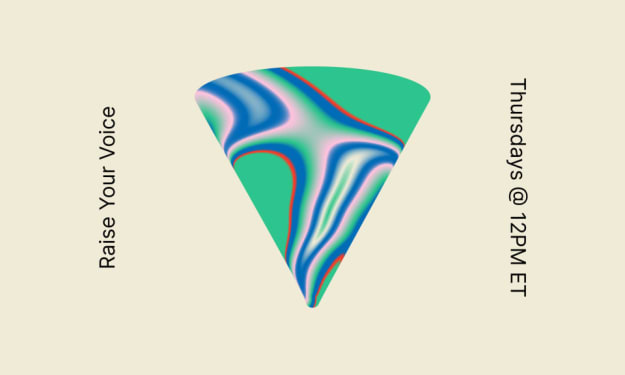Black Wall Street
Color, Competence, and Capital

You’ve heard of China Town, New York. You’ve heard of Spanish Harlem in Manhattan. Have you ever heard of “Little Africa” formally known as The Black Wall Street? Many people have not. Plenty of successful race driven communities exist in America. These communities became more abundant as early as 1823 during the rise of industrialism in America. The immigrants working for the Lowell Textile Mills began chain migration and created ethnic enclaves so they could be reminded of where they came from, support one another, and prosper together. By 1921 most black Americans were accustomed to living in a similar way; separate from whites. For so long, an ethnic enclave was the only option for them.
Located in the Greenwood section of Tulsa, Oklahoma in 1921, African Americans came together, on land bought from O. W. Gurly, a wealthy African American land-owner. They created a community, which had the potential to produce generational wealth. According to an article written by Benjamin Powers titled, “The Power of a Dollar and Rebuilding Black Wall Street,” Black lawyers, business owners, and doctors made up the 1921 Greenwood population. “It's said that a dollar would circulate 19 times before leaving the community.”
At a time when Tulsa, Oklahoma only had two airports, 6 African American families owned airplanes. Blacks built successful banks, schools, churches, theaters, and had access to many splendors that Whites in the same city did not. Struggling to gain a sense of normalcy in a foreign land and dealing with broken promises of forty acres and a mule, some Blacks took matters into their own hands and strived to obtain some of the better things life had to offer. The pure resentment Whites and Klan members harbored during that time resulted in the burning of the Greenwood community and deaths of hundreds of African Americans. This terrorist act is referred to as the 1921 Tulsa Race Riot.
The riot was a great loss for the Black community. We still see the effects even to this day. Also found in “The Power of a Dollar and Rebuilding Black Wall Street” was a statement from Washington D.C. Black entrepreneur, Shareef Abdul-Malik who voiced that, "It was shocking to find that a dollar would circulate in the Asian American community for over 30 days, in the Jewish community for 20 days, in the White community for 17 days, but in the black community for only SIX hours.”
On the contrary, since the 1920s, some African American families have managed to become successful and rebuild their wealth, even so, Black Wall Street has yet to be reestablished. During an interview on Power 105.1 New York, Charlemagne the G-d, one of three host from The Breakfast Club asked Dr. Boyce Watkins, an African American economist and political analyst, if he thought we could ever create Black Wall Street again. Dr. Watkins responded, “Yes. I believe that it is already being created.” He further stated that Black Wall Street is just “a scenario where people are creating cooperative economic situations where there is prosperity.” Although, I do agree with Dr. Watkins statement, I also believe that being physically surrounded by successful people who look like you is vital and can play a key role in one’s success.
In Our Kind of People, a book written by author Lawrence Graham, focuses on the influence of the covert black upper class communities. He conducted a series of interviews with alumni of Howard, Spelman, and Morehouse or what he described as “the colleges that counted.” Upon interviewing, Graham found that the alumni from all three colleges were all well developed both scholastically and socially; also, all viewed their success as inevitable. Students of these black historic colleges were encouraged to intermingle, isolating them from others with incompatible aspirations. The confidence gained through the isolation process proved to positively mold each individual.
Also putting this theory into action with a business was Tochi Osuji, a Desoto, Texas resident and owner of My Choice Spa and Wellness Lounge. “I wanted a little, young, Black girl that wanted to go to a spa to see one in their neighborhood, and know that it's possible," she expressed in a NBC5 news broadcast from February 2015.
It was that very same news broadcast that featured Desoto, Texas as a noteworthy growing affluent African American community. The broadcast further revealed, “In 2013, the median household income in DeSoto was $60,945.” The statewide average as $51,900 and the average in Dallas as $42,846.
All over the United States African Americans are joining forces and creating districts whose economies closely resemble that of the 1920s Greenwood, Tulsa neighborhoods; and yet still no reconstruction of Black Wall Street in the physical sense! Is it possible? Can we do it again?
Businessman, author, and civic leader James Clingman answered, “YES!” in his August 2016 “Can We Rebuild Black Wall Street?” article. “My answer to that question is based on the fact that we have done it before under far worse circumstances than we are under today.”
Now that the question has been answered, its time we all put our best foot forward. Support Black owned businesses. In the article Rebuilding and Investing, Chris David Cowen wrote, “By promoting Black businesses, wealth is generated and sustained within the community, and jobs are created for inhabitants.” Know that this is not a promotion for segregation, but a journey to rebuild cultural and economic stabilization.
About the Creator
Dorinda Hunter
Dorinda Hunter is a Waterbury, Connecticut native currently residing in the DFW area. Because of her love for economics and culture, Dorinda has a passion to financially empower those who need it most.






Comments
There are no comments for this story
Be the first to respond and start the conversation.